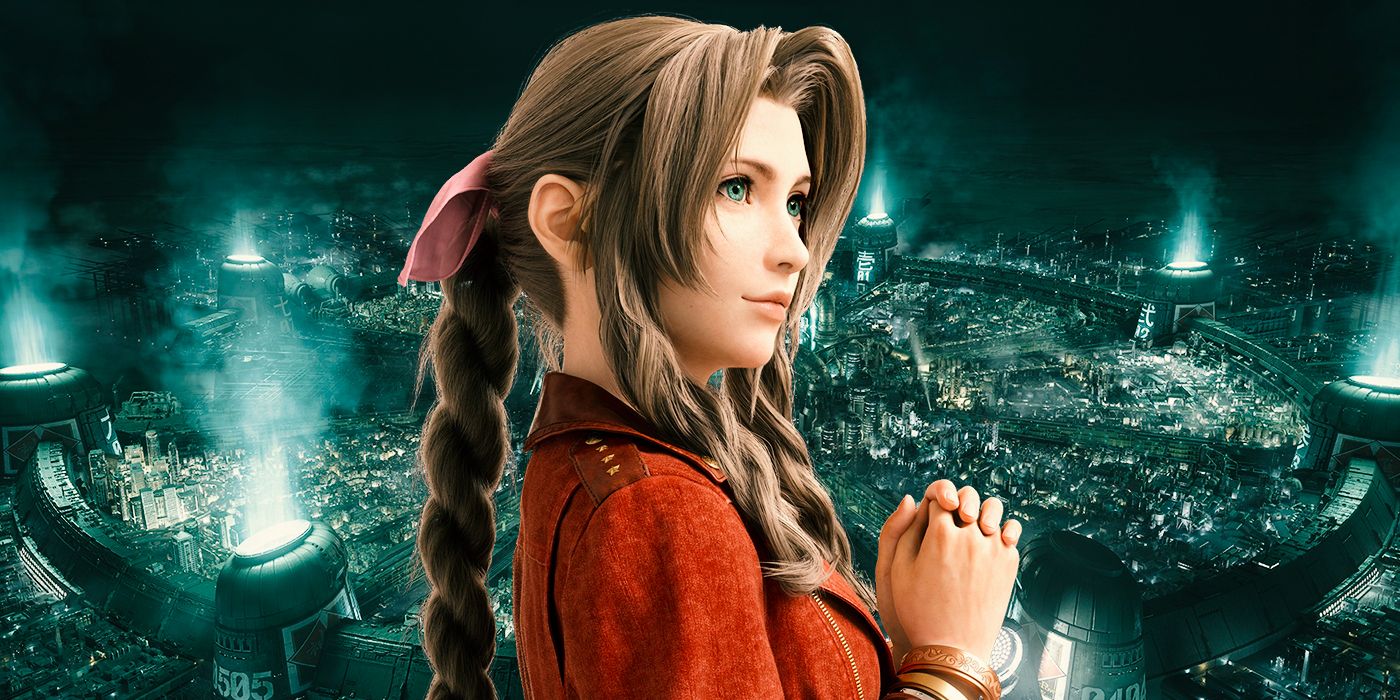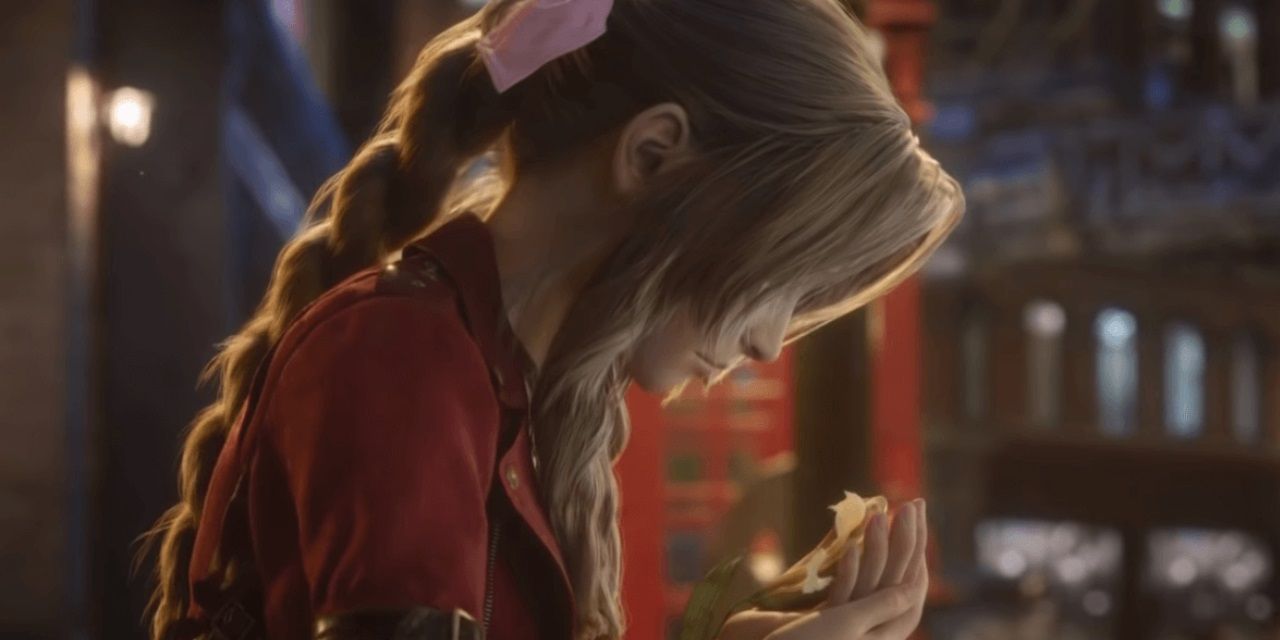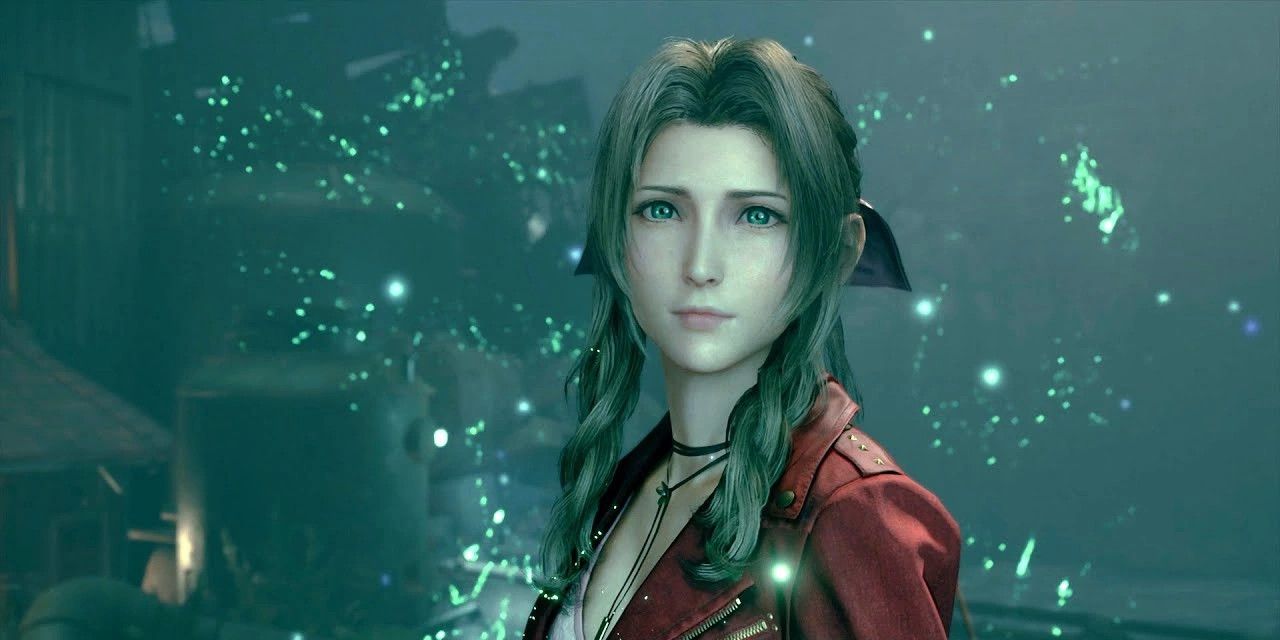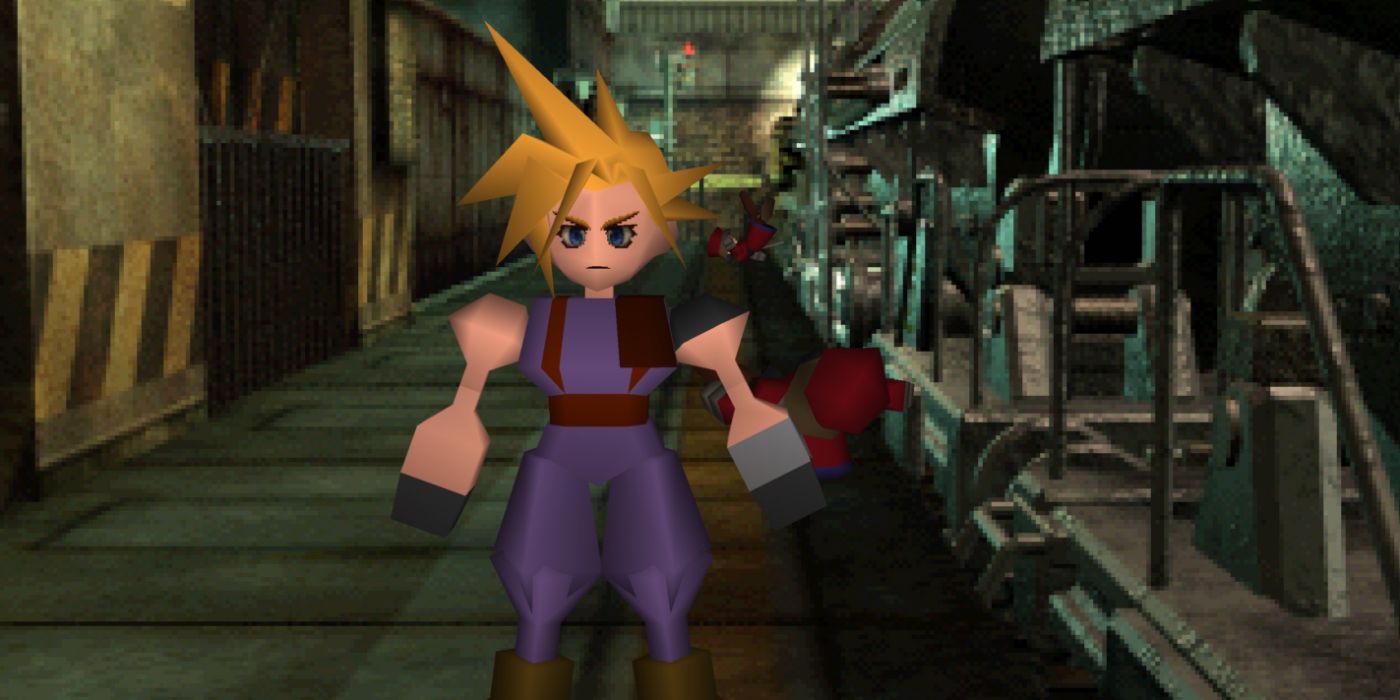Even after 25 years, especially with the remake, Final Fantasy VII fans still talk about Aerith's death. While today's video game buffs think of the move as no big deal, killing off a major character was incredibly rare when the FFVII first came out. According to an interview with Yoshinori Kitase and Tetsuya Nomura, it almost went much farther, killing nearly everyone after parachuting into Midgar. Before the game's release, Nomura convinced Kitase and writer Kazushige Nojima to leave the deaths at one.
The designers behind Final Fantasy VII worked tirelessly during its development to produce sweeping visuals for the time and a plot-heavy game that felt real and lived in. As the hero, Cloud's connection to the innocent and pure Aerith was a significant driver of that story. Throughout the game's first act, Cloud becomes attached to Aerith and feels a pull toward her after his mother has died and he's left Shinra. She opens him up and even makes him laugh at times.
When Cloud discovers that Sephiroth can manipulate him and the villain steals the Black Materia, it's Aerith that he sees in his dream-like state. Players know that there's no way Aerith will be able to defeat Sephiroth on her own, but she goes to face him anyway. That climatic tension of knowing something terrible is about to happen permeates the endings of Disc 1.
Of course, Aerith's fate is sealed. The game tricks players at this point, making them feel a moment of relief when Tifa and Barret stop a controlled Cloud from stabbing her. But Sephiroth was waiting in the wings, watching everything unfold before dropping from the sky and stabbing Aerith through the heart.
When the creators sat down to discuss the history of FFVII with Polygon in 2017, they chatted about how the heroine's tragic fate affected fans. What's more, they brought up how there were supposed to be far more deaths in one of Kitase's original endings.
Kitase and Nojima had at one point planned to kill everyone but the characters who made up the character's party as they returned to Midgar later in the game. Nomura jokes about having to stop them from carrying it out. The trio and composer Nobuo Uematsu also discussed how the game's theme was "life," as Nomura revealed that killing Aerith was designed to give weight to that theme. Aerith's death, according to the creators, was to show how a cunning villain wouldn't leave such an important character alive. Sephiroth is smart, and he knows Aerith stands in his way. So, she has to go. They fought against the trope of killing off a hero and instead went the way of killing a loved one.
If the other characters had also died, it definitely would have driven home that anyone can die at any time, but it certainly would have been a lot darker. Fans could eventually get past Aerith's death, but getting past all of those deaths might not have been possible. It could have even led to a drop-off in sales after word got out that the ending was devasting.
Gaming as a whole could have changed significantly if the trend of killing characters picked up steam. On the flip side, if the game tanked because of the deaths, Final Fantasy would be gone as the world knows it. The series has affected gaming so much it's near impossible to imagine what it would be like without the iconic franchise still being released today.
Final Fantasy VII brought Japanese RPGs to America in a big way and launched the success of cinematic games that made players feel like a part of the world. If FFVII had sunk due to killing off so many characters, that trend in games could very well have been dead on arrival. Lastly, the Sony Playstation became a huge console thanks in large part to the success of FFVII. It also set off a feud of epic proportions between Nintendo and Square that didn't end until the companies were under new leadership. If the game had flopped, Playstation would likely have taken much longer to get off the ground, and Square may have gone crawling back to Nintendo.




